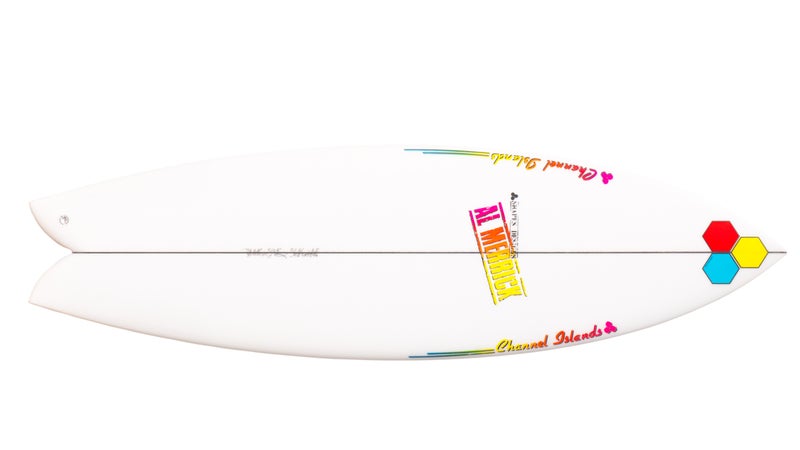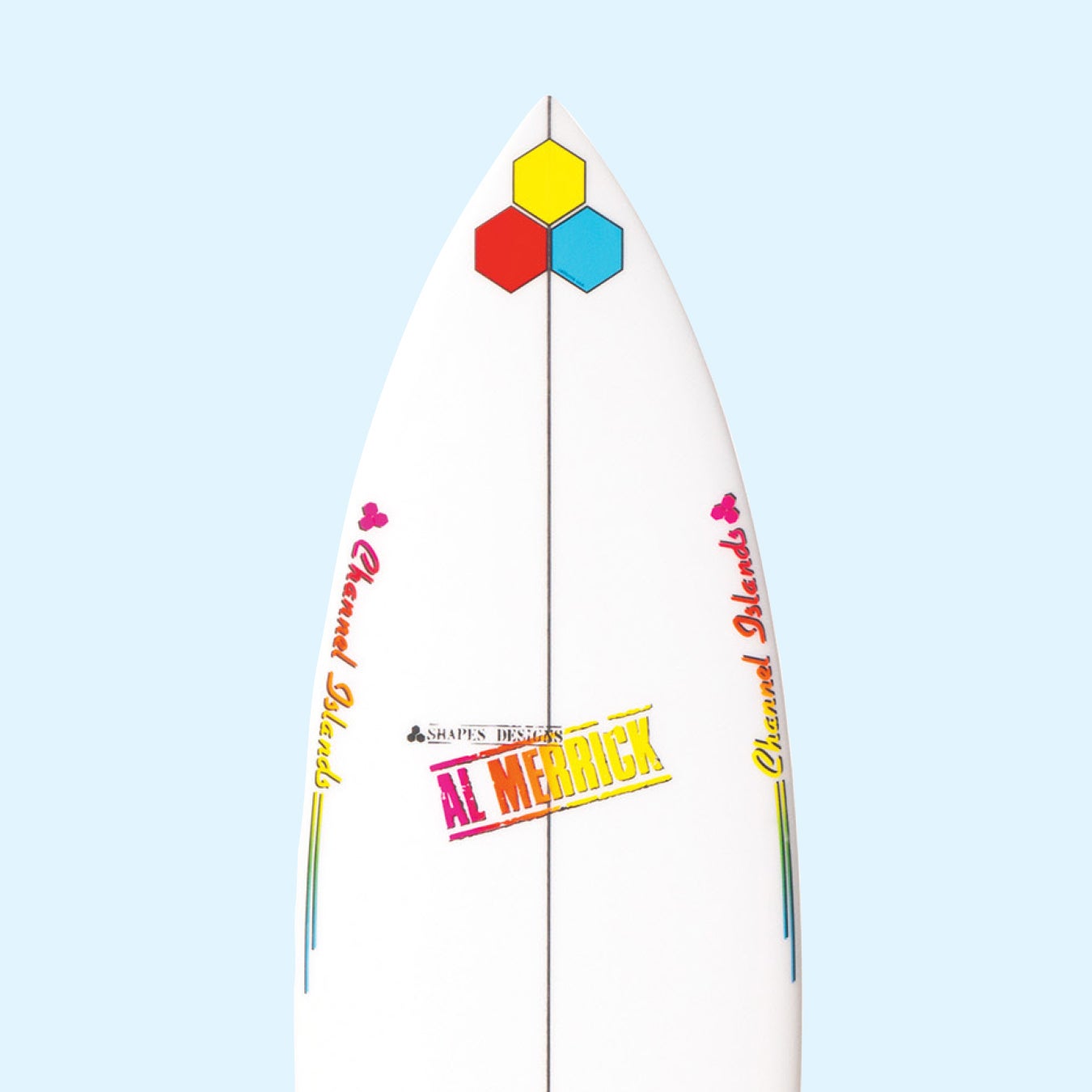Channel Islands FishBeard ($720)

For a few years prior to 1980, twin fins were the gold standard for performance surfing. But they were left behind for progressive and competitive surfing when the three-fin thruster—which generally offers greater control—debuted that year. There have since been many modern iterations of the twin. But when freesurfer Parker Coffin asked boardmaker Channel Islands to meld two of his favorite designs from the brand, something magical happened. “The FishBeard is all I want to ride,” Coffin says. “Frontside, backside, small waves, big waves, reef breaks, beach break. It makes every other board not as fun.” I tested a stock FishBeard (5’6″ by 19″ by 2 5/16″) in San Diego and quickly fell in love. The thinner width above the front foot (compared with a traditional twin’s) allows for precision surfing, while the absence of a third fin creates more speed. And because the proprietary keel fins have more splay (outward angle) and less surface area than traditional offerings, the board holds better on rail. In bowly three-foot surf, it allowed testers to push off the bottom and vertically into the lip without sliding out, a rarity on other twins. At a local winter slab, we had no issue swinging late and taking off under the lip. Testers made a few tubes and didn’t skip out once. Ride the FishBeard longer and narrower than a traditional twin and just a couple of inches shorter than your shortboard. It’s a hybrid of the two, but you might find it replaces both.


